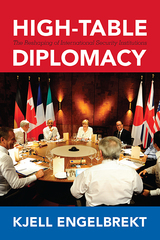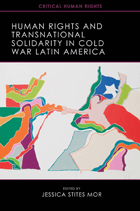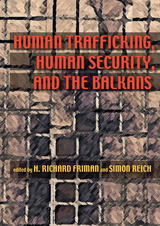8 start with H start with H

Intended primarily for those doing research in the field of international management, this book should also interest scholars and students of public institutions, sociology, and industrial psychology. Managers will find the book's comprehensive overview of international management to be invaluable. Its global perspective will appeal to readers around the world.
Betty Jane Punnett is Professor of International Business, University of the West Indies, Cave Hill Campus.
Oded Shenkar is Ford Motor Company Chair in Global Business Management, Fisher College of Business, the Ohio State University.

The proliferation of “minilateral” summits is reshaping how international security problems are addressed, yet these summits remain a poorly understood phenomenon. In this groundbreaking work, Kjell Engelbrekt contrasts the most important minilateral summits—the G7 (formerly G8) and G20—with the older and more formal UN Security Council to assess where the diplomacy of international security is taking place and whether these institutions complement or compete with each other.
Engelbrekt’s research in primary-source documents of the G7, G8, G20, and UN Security Council provides unique insight into how these institutions deliberate on three policy areas: conflict management, counterterrorism cooperation, and climate change mitigation. Relatively informal and flexible, GX diplomacy invites more countries to take a seat at the table and allows nontraditional security threats to be placed on the agenda. Engelbrekt concludes, however, that there is a continuing need for institutions like the UN to address traditional security problems.
High-Table Diplomacy will provoke discussion and further research on the role of minilateral summits among scholars of international relations, security studies, and international organizations.

Following the 9/11 attacks and the anthrax letters that appeared in their wake, the threat posed by the widespread accessibility of chemical and biological weapons has continually been used to stir public fear and opinion by politicians and the media alike. In Chemical and Biological Weapons, Edward M. Spiers cuts through the scare tactics and hype to provide a thorough and even-handed examination of the weapons themselves—the various types and effects—and their evolution from World War I to the present.
Spiers describes the similarities and differences between the two types of weapons and how technological advancements have led to tactical innovations in their use over time. As well, he gives equal attention to the international response to the proliferation of chemical and biological weapons, analyzing global efforts aimed at restraining their use, such as deterrence and disarmament, and the effectiveness of these approaches in the twentieth century. Using Iraq as a case study, Spiers also investigates its deployment of chemical weapons in the Iran-Iraq War and the attempts by the international community to disarm Iraq through the United Nations Special Commission and the United States-led war in 2003.
A timely and balanced historical survey, Chemical and Biological Weapons will be of interest to readers studying the proliferation and use of chemical and biological warfare and the reactions of the international community throughout the last several decades.

This specialized knowledge is located at multiple sites and moves across borders via a dazzling array of channels, embedded in heads and hands, in artifacts, and in texts. In the United States, it shapes policies for visas, export controls, and nuclear weapons proliferation; in Algeria, it enhances the production of oranges by colonial settlers; in Vietnam, it facilitates the exploitation of a river delta. In India it transforms modes of agricultural production. It implants American values in Latin America. By concentrating on the conditions that allow for knowledge movement, these essays explore travel and exchange in face-to-face encounters and show how border-crossings mobilize extensive bureaucratic technologies.

The decade of the 1990s witnessed enormous changes in the international environment. The Cold War conclusively ended. Biotechnology and communications technology made rapid advances. Barriers to international trade and investment declined. Taken together, these developments created many opportunities for peace and prosperity.
At the same time, with the end of superpower domination, ethnically based intranational conflicts brought on widespread suffering. And while globalization expanded opportunity, growth, and incomes, it increased inequality of incomes and decreased human security. Moreover, as countries have become more closely linked, insecurity in one country has affected security in other countries.

Edited by Jessica Stites Mor, this book offers fine-grained case studies that show how Latin America’s re-emerging Left transformed the struggles against dictatorship and repression of the Cold War into the language of anti-colonialism, socioeconomic rights, and identity.

Human Trafficking, Human Security, and the Balkans brings together leading scholars, NGO representatives, and government officials to analyze and offer solutions to this challenge. The contributors explore the economic dynamics of human trafficking in an era of globalization, which has greatly facilitated not only the flow of goods and services but also the trade in human beings. They also examine the effectiveness of international and transnational policies and practice, the impact of peacekeeping forces, and the emergence of national and regional action plans in the Western Balkans and, more broadly, in South Eastern Europe. Finally, they consider the nature and ramifications of the gap between human security rhetoric and institutional policy steps against human trafficking.

The major humanitarian crises of recent years are well known: the Shoah, the killing fields of Cambodia, the Rwandan genocide, the massacre in Bosnia, and the tsunami in Southeast Asia, as well as the bloody conflicts in South Sudan, Syria, and Afghanistan. Millions have been killed and many millions more have been driven from their homes; the number of refugees and internally displaced persons has reached record levels. Could these crises have been prevented? Why do they continue to happen? This book seeks to understand how humanity itself is in crisis, and what we can do about it.
Hollenbach draws on the values that have shaped major humanitarian initiatives over the past century and a half, such as the commitments of the International Committee of the Red Cross, Oxfam, Doctors Without Borders, as well as the values of diverse religious traditions, including Catholicism, to examine the scope of our responsibilities and practical solutions to these global crises. He also explores the economic and political causes of these tragedies, and uncovers key moral issues for both policy-makers and for practitioners working in humanitarian agencies and faith communities.
READERS
Browse our collection.
PUBLISHERS
See BiblioVault's publisher services.
STUDENT SERVICES
Files for college accessibility offices.
UChicago Accessibility Resources
home | accessibility | search | about | contact us
BiblioVault ® 2001 - 2024
The University of Chicago Press









